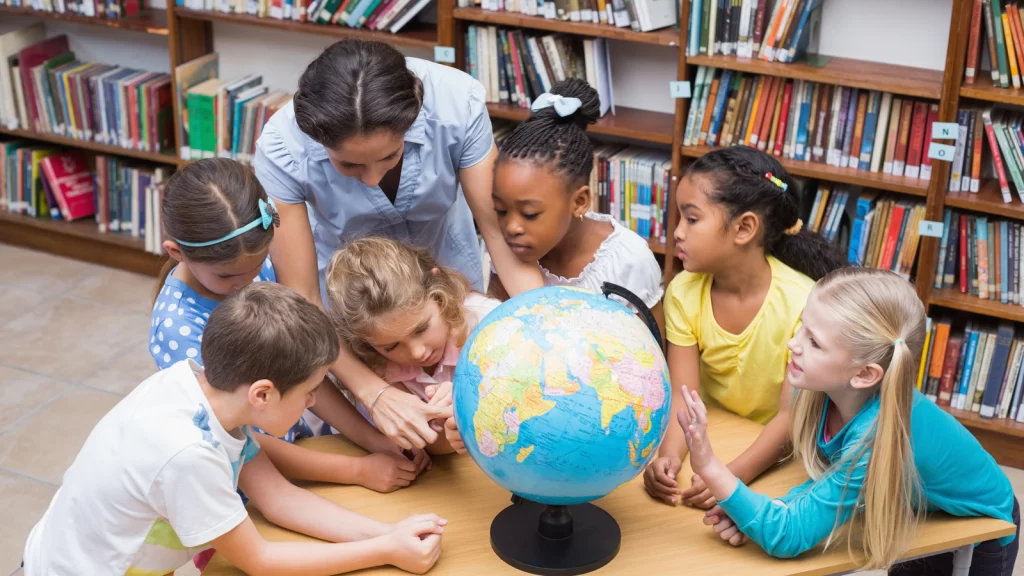
Benefits of Nursery Schools for Early Childhood Education for your Kids
November 23, 2023
The early years of a child’s life are foundational for their overall development. During this crucial period, exposure to a structured and stimulating learning environment becomes paramount. Nursery schools, often the first step in a child’s educational journey, play a pivotal role in shaping their cognitive, social, and emotional development. In this comprehensive exploration, we delve into the myriad benefits of nursery schools for Early Childhood Education, shedding light on how these institutions contribute to the holistic growth of young minds.
1: Social Development
a. Peer Interaction:
One of the primary benefits of nursery schools is the opportunity they provide for children to engage with their peers. Through organized activities and free play, children learn to navigate social interactions, developing essential skills such as communication, cooperation, and conflict resolution.
b. Teamwork and Cooperation:
Group activities in nursery schools foster teamwork and cooperation. Children learn to collaborate with others, share resources, and work towards common goals. These experiences lay the foundation for positive social dynamics that will prove invaluable throughout their lives.
2: Structured Learning Environment
a. Introduction to Routine:
Nursery schools introduce young learners to the concept of routine, providing a structured daily schedule. This exposure is vital in helping children develop a sense of predictability and security, crucial elements for future academic success.
b. Basic Educational Foundations:
Early exposure to fundamental concepts like numbers, letters, and shapes sparks a curiosity for learning. Nursery schools utilize play-based methods to instill a love for learning, setting the stage for a smooth transition into formal education.
3: Development of Fine and Gross Motor Skills
a. Play-Based Learning:
Engaging in activities such as drawing, building, and manipulating objects promotes the development of fine motor skills. Nursery schools recognize the importance of play-based learning in honing these skills in a fun and interactive manner.
b. Physical Activities:
Outdoor play and organized physical activities contribute to the development of gross motor skills. Climbing, running, and participating in sports enhance coordination, balance, and overall physical well-being.
4: Emphasis on Creativity and Imagination
a. Art and Craft Activities:
Nursery schools prioritize creativity through arts and crafts activities. These exercises not only allow children to express themselves but also stimulate their imaginations, fostering a love for self-expression.
b. Storytelling and Music:
Exposure to storytelling and music in nursery schools enhances cognitive development. It cultivates a love for literature, improves language skills, and provides an early introduction to the joy of creative expression.
5: Cultivation of Independence
a. Self-Help Skills:
Promoting self-help skills is a cornerstone of nursery school education. Teaching children to dress themselves, clean up after activities, and practice personal hygiene instills a sense of independence and self-sufficiency.
b. Decision-Making:
Through age-appropriate choices, nursery schools empower children to make decisions. This not only fosters autonomy but also teaches responsibility, essential qualities for navigating the challenges of growing up.
6: Early Identification of Developmental Challenges
a. Observation and Assessment:
Trained educators in nursery schools are adept at observing and assessing children’s developmental progress. This early childhood education and monitoring allows for the identification of any challenges or delays, enabling timely intervention and support.
b. Collaboration with Parents:
Nursery schools often involve parents in the assessment process. This collaborative approach ensures that parents are informed partners in their child’s education, working together with educators to address and overcome any developmental concerns.
7: Promotion of Positive Behavior and Discipline
a. Social Skills Development:
Nursery schools contribute significantly to the development of positive behavior through social interactions. Children learn the importance of kindness, sharing, and empathy, setting the stage for healthy relationships in the future.
b. Effective Discipline Strategies:
Educators in nursery schools employ age-appropriate discipline strategies. These strategies create a positive learning environment, emphasizing the importance of good behavior while providing guidance and support for children as they learn social norms.
8: Preparation for Formal Education
a. Smooth Transition to School:
Early childhood education in nursery schools plays a crucial role in preparing children for the transition to formal education. Introducing routines, basic academic concepts, and essential social and cultural skills eases the adjustment to more structured learning environments.
b. Love for Learning:
By cultivating a love for learning from an early age, nursery schools instill a positive attitude towards education. This foundational love for learning becomes a driving force that propels children through their academic journey.
Conclusion:
In conclusion, the benefits of nursery schools extend far beyond merely providing a safe space for young children. These institutions serve as developmental hubs where foundational skills are honed, and a love for learning is instilled. From social development and structured learning environments to the cultivation of independence and creativity, nursery schools play a pivotal role in shaping the trajectory of a child’s educational journey. As we continue to recognize the advantages of nursery education, the importance of nursery education in laying the groundwork for future success becomes increasingly apparent. By investing in these formative years, we invest in a future where young minds flourish and reach their full potential.


